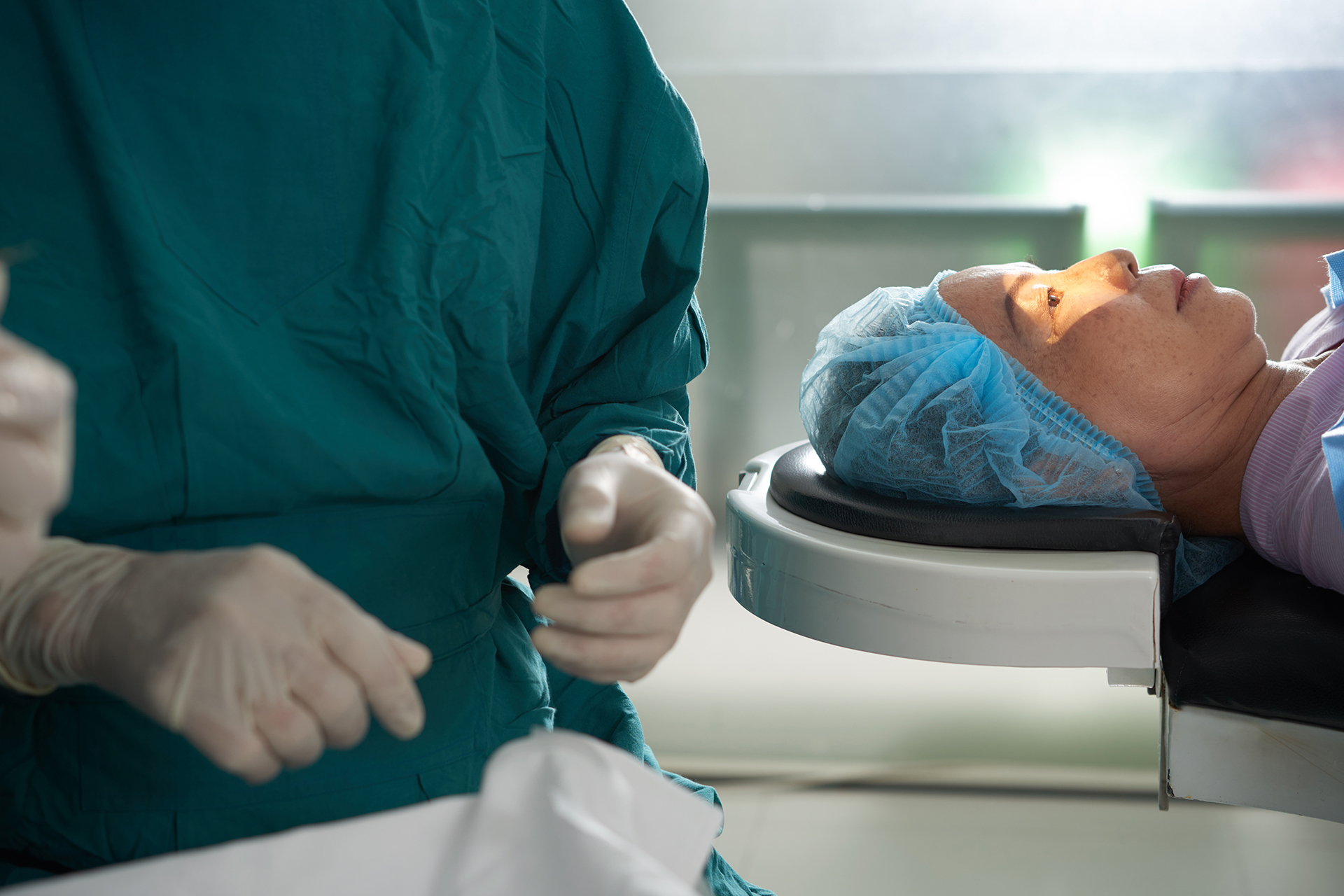At the back of your eye lies a bundle of fibers called the optic nerve, which is responsible for transmitting visual information from your retina to your brain. When it becomes damaged, like it does with glaucoma, it can lead to irreversible vision loss. Glaucoma deteriorates the optic nerve by causing high levels of intraocular pressure within the eye. The best way to slow down the progression of optic nerve damage in glaucoma patients is to reduce this internal pressure. While there are several treatment types that can combat this, in today’s post we’ll be looking at the pros and cons of laser surgery for glaucoma.
The Pros and Cons of Laser Surgery for Glaucoma
Pros
- Less invasive: Laser surgery is a minimally invasive procedure that is often preferred over conventional surgery for glaucoma.
- Reduced risk of complications: Laser surgery for glaucoma carries a lower risk of complications compared to traditional surgery. It causes minimal tissue damage and bleeding, reducing the chances of infection, inflammation, and other post-operative complications (as noted as drawbacks below).
- Outpatient procedure: Laser surgery for glaucoma is typically performed on an outpatient basis, allowing patients to return home the same day. This eliminates the need for hospital admission and reduces the overall cost and inconvenience associated with surgery.
- Quick recovery: The recovery time after laser surgery is relatively short. Most patients can resume their normal activities within a day or two, minimizing disruption to their daily lives.
- Customizable treatment: Laser surgery can be tailored to each patient’s specific needs. Different types of laser treatments are available for different types of glaucoma, allowing for individualized and targeted treatment.
Cons
- Infection: It is possible to develop an infection in the eye, even with surgeons providing antibiotics before, during, and after surgery. While serious, most eye infections are caught early by looking for redness, pain, or excessive tearing, and can be adequately treated with antibiotic drops.
- Vision Loss: While laser surgery can in very rare cases cause reduced permanent sight or the loss of it entirely, it’s a very uncommon side effect. Your vision may be temporarily affected after the surgery, but the goal of the surgery is to improve your vision over time.
- Eye Bleeding: A possible but infrequent complication includes bleeding inside the eye, usually a result of taking blood thinners (Coumadin) prior to surgery. Follow the ophthalmologist’s instructions on anticoagulants before and after the surgery.
- Low Eye Pressure: In some cases, eye pressure can become too low after glaucoma surgery, causing fluid to collect behind the eye and creating a shadow in your side vision. This is a temporary side effect, and will disappear once pressure returns to intended levels, but can also be fixed with a secondary surgery if it persists.
- Scarring: Laser surgeries are not meant as a permanent fix to glaucoma, so your natural healing/scarring tendencies may eventually cause the higher pressure to return. Restarting your glaucoma medications or undergoing revisions can be used to re-address the pressure.
- Cataract Development: It is possible to experience accelerated development of cataracts, but these are fairly easy to fix with a second operation down the line.
While these potential drawbacks are serious, their occurrence of them are rare and manageable, and the vast majority of glaucoma surgeries are successful at slowing down its progression, achieving the intended eye pressure, and preserving your vision. If you have questions or concerns about the pros and cons of laser surgery for glaucoma, get in touch with us here at Brimhall Eye, and take the first step toward protecting your vision.





